To begin to understand the length of the Ganges River, you really need to spend time floating quietly downstream on a raft. But even then, you would need more time than most people have to spare. So, let us imagine traveling down river, starting 13,000 feet above sea level and then continuing along the icy melt water of the Himalaya Mountains. From here, the Ganges winds across extensive plains, irrigating farmlands and serving thirsty factories and more than 500 million people. By the time the waters of the Ganges reach Bangladesh, more than 1,500 miles from their source, the river spreads out to form the massive Ganges Delta (above). As it flows, it passes by and through many cities, towns, and villages. Let’s visit a few.

Rishikesh
THE FIRST CITY WE PASS THROUGH IS RISHIKESH, which is tucked into the foot-slopes of the Himalayas. According to tradition, this is the place where the God Vishnu took on a human form as Lord of the Senses (Hrishika)—hence the name Hrishikesha in the ancient Sanskrit language.
Another legend focuses on Lakshmana Rama, one of the most widely revered Hindu gods. It tells of Lakshman’s decision to build a bridge across the Ganges at the site of Rishikesh. He used jute rope, which is a very strong fiber made from the bark of the hemp plant. A similar rope bridge was built in the 1800s, but eventually it was replaced with the current suspension bridge made of steel and concrete (upper right). The tale is a good example of how people start with one idea, and then a better idea comes along. Anthropologists call this process cultural evolution.
About 50 years ago, the Beatles, the famous British rock band, went to Rishikesh to study yoga and learn more about Hindu beliefs. Their pilgrimage was publicized across the world, and, in time, Rishikesh became known as the “Yoga capital of the world.”
Haridwar
THE NEXT STOP IS HARIDWAR, just a few miles downstream from Rishikesh and only 157 miles from the source of the Ganges. But, at this point, the river has already fallen to just over 1,000 feet above sea level.
Long ago, when the Hindu gods were particularly active, the heavenly bird Garuda accidentally spilt a few drops of the nectar of immortality near what is now Haridwar. As a result, the settlement that developed there is one of the seven most important cities in the Hindu religion.
This story is from the February 2017 edition of Dig Into History Magazine for Kids and Teens.
Start your 7-day Magzter GOLD free trial to access thousands of curated premium stories, and 9,000+ magazines and newspapers.
Already a subscriber ? Sign In
This story is from the February 2017 edition of Dig Into History Magazine for Kids and Teens.
Start your 7-day Magzter GOLD free trial to access thousands of curated premium stories, and 9,000+ magazines and newspapers.
Already a subscriber? Sign In
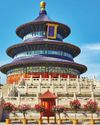
Worshiping Heaven
For almost 500 years, emperors of the Ming and Qing dynasties offered sacrifices and prayers at the Temple of Heaven in Beijing.
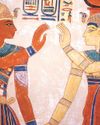
Peace Reigns
The news spread throughout Egypt—a new pharaoh, Ramses III, now sat on the throne.
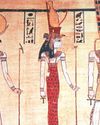
Problems To The East
Ramses III, the second king of Egypt’s 20th Dynasty, is viewed as Egypt’s last truly great pharaoh.
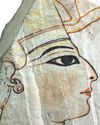
The Successors
Following the death of Ramses III, eight pharaohs, all named Ramses, ruled Egypt.

Stone Code
Hundreds of ships, led by the French general Napoleon Bonaparte, sailed from France in May 1798 on a secret mission.

Up & Away!
Eclipse observers often face unexpected difficulties, sometimes on their way to their chosen sites and sometimes at a site itself.

Edison's Eclipse Adventure
Thomas Edison (1847–1931) is the best-known inventor in American history.
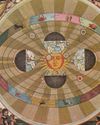
Digging Up Copernicus
The scientist “who made the Earth a planet” is how the Harvard-Smithsonian astronomer Owen Gingerich refers to Nicolaus Copernicus (1473–1543). Copernicus’ path breaking book, On the Revolutions of the Heavenly Spheres,challenged the centuries-old belief that the Earth stood stationary at the center of the cosmos.
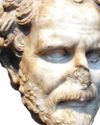
Demosthenes & Cicero
Even today, more than 2,000 years after they lived, Demosthenes and Cicero are still considered two of history’s most outstanding orators.
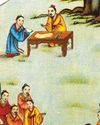
Confucius & Socrates
Some teachers are so inspirational that their influence lives on long after they die.